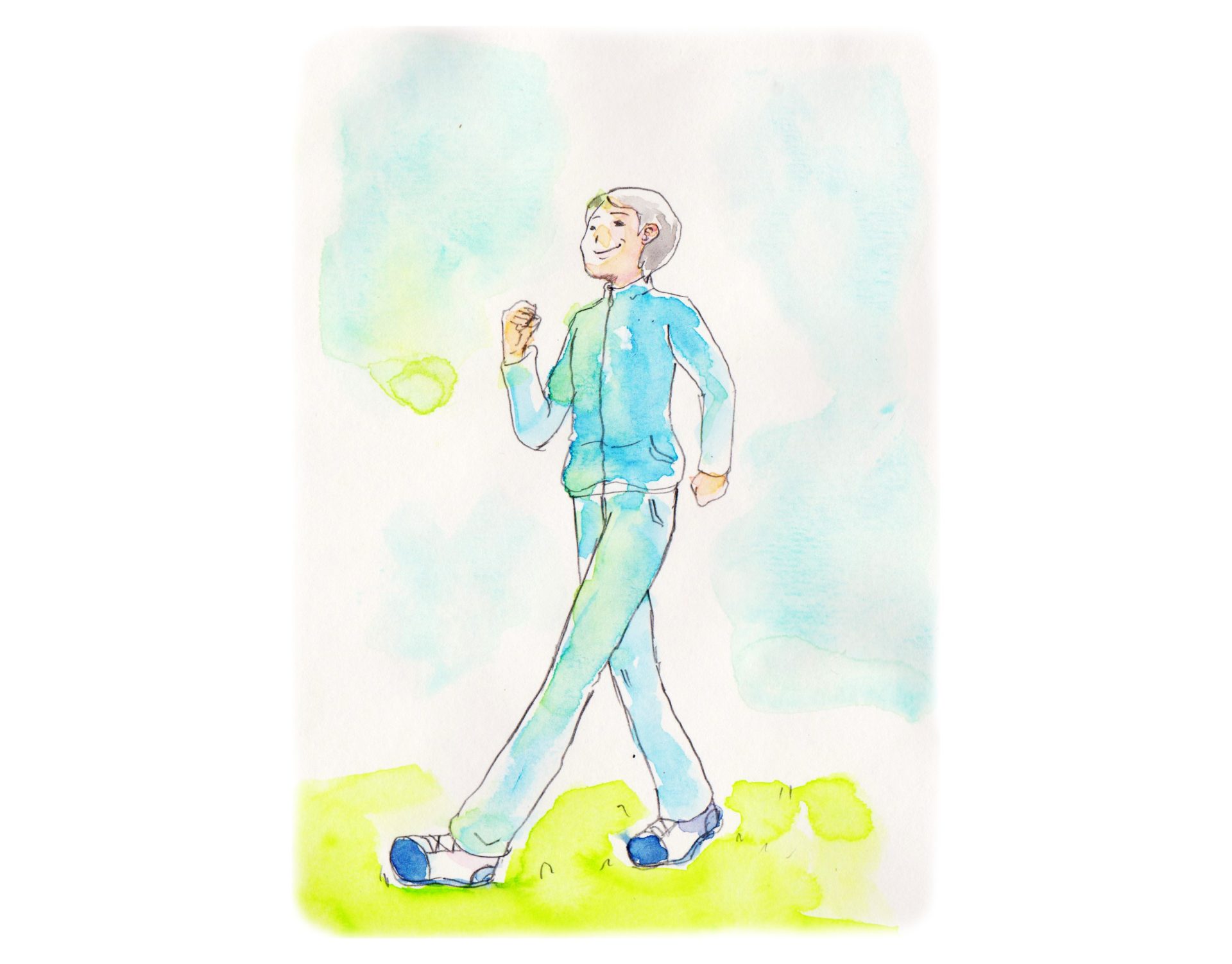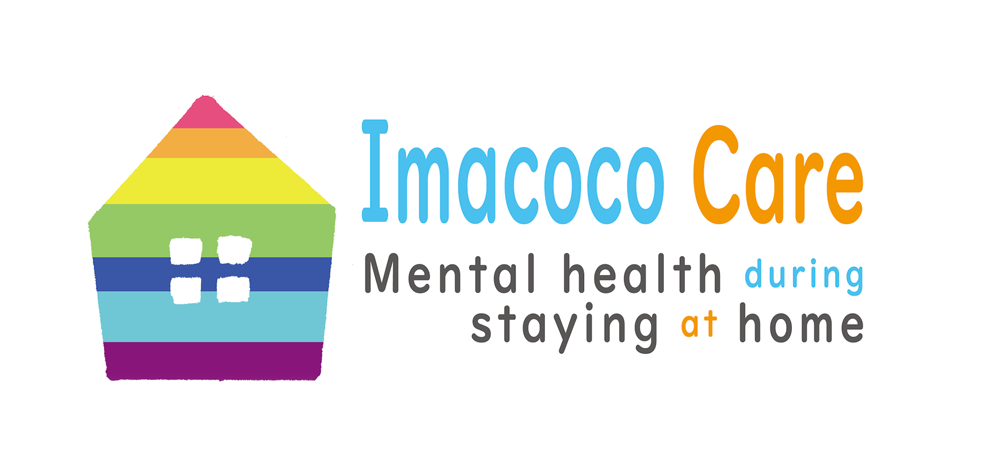The impact of COVID-19 is making it difficult for people around the world to lead normal lives.
The time for physical activity has been greatly reduced as we are at home or working from home. Many of you may be feeling unwell, such as experiencing weight gain or sleep problems.
Here is the case of a worker, Mr. Tanaka.
Mr. Tanaka is employed by an IT service company in Tokyo. He started working from home according to corporate policy after the emergency was declared in Tokyo. He had to set up a PC and network environment in a hurry and now has worked from home for two weeks. Although it was fresh for him at first, working at home makes it difficult for him to adjust and maintain concentration. He now feels more uncomfortable than usual. His weight and body fat have been increasing, probably because he does not leave home. Also, he has had shoulder stiffness and back pain because the desk and chair do not provide enough support because they belong to his daughter. Moreover, he does not fall asleep well, and it is becoming increasingly uncooperative.
Physical activity may help to relieve a condition like Tanaka’s.
Here are some tips to help you remain active, while being properly aware of the spread of COVID-19.
What is physical activity?
Physical activity is defined as any behaviors that consume more energy than sitting and resting.
For example, physical activity includes cooking, laundering, cleaning, caring for children, commuting, walking, and going up and downstairs. Even standing is included in physical activity.
Among these, exercise is defined as planned activities to maintain and improve physical fitness. Exercise includes jogging, running, cycling, tennis, swimming, and other sports.
Effects of physical activity
There are many benefits for your physical health, as well as your mental health, to maintaining appropriate levels of physical activity.
-
- You can prevent or improve depression
- You can prevent or improve anxiety
- You can regulate the circadian rhythms for a good night’s sleep.
How much physical activity do we need to do?
How much and how should physical activity be done in emergency settings? Let’s take a look at the recommended levels of physical activity by age.
1)All generations
At first, start by doing “Plus Ten.” Aim for ten more minutes of physical activity than you currently engage in. Do activities in and around the house, with plenty of space between people.
2) Early childhood (about 1 to 5 years old)
Enjoy moving your body every day for at least 60 minutes a day. For example, take walks with your family around the house. If you are going to the park, do not touch any playground equipment that may have been touched by other people. The virus can live on this equipment for a long time.
3) 6 to 17 years old
Aim for at least 60 minutes of physical activity a day. Utilize TV and video exercise programs at home to move your body or do outdoor activities that do not involve much contact with other children. If you are going to the park, do not touch any playground equipment that may have been touched by other people.
4) 18 to 64 years old
Aim 60 minutes of physical activity a day. Try finding activities in your life, such as cleaning the house or shopping.
5) Age 65 and over
Take 40 minutes a day, even if it’s just slowly, and avoid sedentary activities. Take a walk around your house where there are few people or utilize radio and TV programs.
Is it good to go outside?

In Japan, exercise and walks outdoors are considered necessary to sustaining healthy lives and are not restricted (as of May 1, 2020). For example, there are no problems walking or jogging around the house. However, to prevent infection or the spread of infection, be careful to keep a distance of at least two meters from any people around you. Also, find a place with as few people as possible. It is also important to wear a mask, or cover your mouth, while you are active so that you are not spreading the infection to other people around you.
When you do physical activity in the park, do not touch the playground equipment that other people touch. Also, do not touch your face. There is a risk of infection if you touch your eyes, nose, or mouth with virus-tainted hands. If you want to touch your face, you should wash your hands first. Wash your hands, and/or disinfect your fingers with alcohol, as soon as you get home.
If you have a fever, cough, sluggishness, shortness of breath, or are unwell, refrain from activities and going to public spaces.
Reflections
In the next section, this site will give you some tips to help you find relevant activities.
For those of you who do not usually have the habit of doing much physical activity, please see “Let’s find a physical activity that suits you – for beginners.”
If you have the habit of regular exercises, please refer to “Let’s find a physical activity that suits you – for advanced learners.”
<Reference>
The content of this article is based on the information provided below.
Ministry of Health, Labor and Welfare. Physical Activity Standards for Health Promotion 2013.
https://www.mhlw.go.jp/stf/houdou/2r9852000002xple-att/2r9852000002xpqt.pdf.
Ministry of Health, Labor and Welfare. Physical Activity Guidelines for Health Promotion (Active Guide).
https://www.mhlw.go.jp/stf/houdou/2r9852000002xple-att/2r9852000002xpr1.pdf.
Japan Society for Exercise and Epidemiology press release. The Japan Society for Exercise and Epidemiology recommends physical activity with sufficient distance between people in and around the house in order to prevent health hazards caused by insufficient physical activity and too much sitting as a result of the request to refrain from going outside as a countermeasure against the new coronavirus infection.
https://www.zaikei.co.jp/releases/989057/.
Altena E, et al., Dealing with sleep problems during home confinement due to the COVID-19 outbreak: practical recommendations from a task force of the European CBT-I Academy. J Sleep Res. 2020. doi: 10.1111/jsr.13052. [Epub ahead of print]



